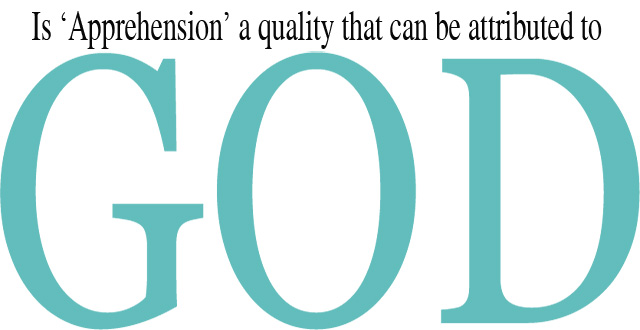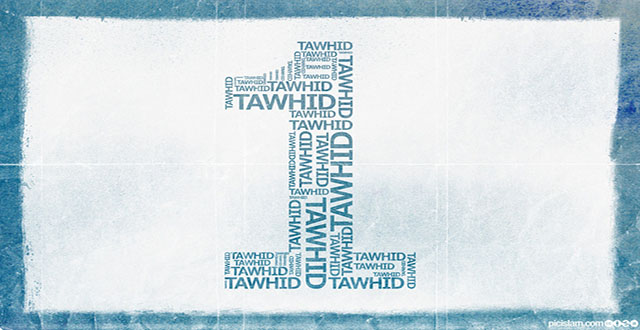
The question as to who the ‘saved ummah’ is has been a matter of contention and a battleground for Muslims throughout the history. These theological discussions have been mainly based on a hadith which is attributed to the Prophet of Islam, peace be upon him and his family. That hadith is called or known as iftiraq (separation) tradition. Those who have written books on sects, religions and denominations have endeavored to apply this hadith to Muslim sects in terms of their number. However, in this tradition, it has been explicitly stated that out of all the various sects, only one of them is the ‘saved sect’. That is why all the sects have been introducing and portraying themselves as the saved and prosperous sect among all the Muslim sects. In this regard, the holy Quran also refers to certain groups of people who, by making recourse to racial or tribal superiority, not only considered themselves as entitled to Paradise but they also believed that others were not worthy of entering Paradise and attaining salvation. As well, there are narrations in both Shia and Sunni sources referring to reward and punishment and Paradise and hell. At times, both sects have mentioned certain criteria for reward and punishment. With this introduction in mind, it is now necessary to clarify two basic points:
First: Has God fixed any standards for going to Paradise or Hell? The Quran refers to the sayings of those who considered themselves superior to others believing that racial and ethnic features would cause prosperity and salvation. This group of people believed that they would be subjected to punishment in Hell for a few days and then finally Paradise would be their abode. Confronting such an assumption from this group of people, God says: “And they say: Fire shall not touch us but for a few days. Say: Have you received a promise from Allah, then Allah will not fail to perform His promise, or do you speak against Allah what you do not know?”[1]
Thereupon, God sets forth a general criterion for going to Paradise and Hell. He draws the attention to the general criterion by saying “Nay, those who seek gain in evil, and are girt round by their sins,- they are companions of the Fire: Therein shall they abide (For ever). But those who have faith and work righteousness, they are companions of the Garden: Therein shall they abide (For ever).”[2]
Also, some have claimed that none other than Jews and Christians would enter Paradise. The Quran considers it as an absurd claim saying that those who make such allegations have no reason to substantiate their claim. The allegation that Paradise is reserved for them is not but a dream which they cherish. God sets forth general rule and standards for entering Paradise by saying: “Yes! whoever submits himself entirely to Allah and he is the doer of good (to others) he has his reward from his Lord, and there is no fear for him nor shall he grieve.”[3]
According to the Quranic verses, it is submission and noble deeds that make one entitled to rewards and salvation. That is to say, Paradise is not earned through chanting slogans or making an allegation. In fact, faith and good deeds are required to go to Paradise. The Quran stresses that in order for a person to become prosperous, he should abide by certain rules and principles. Good deeds are the best criterion and standard with which a man’s position in the next world is determined or measured. In other words, man is described to be either prosperous or wicked by dint of his deeds. Of course, in this categorization, the Quran names a third group of people who, according to the holy verse, are people who have hope in God’s mercy. “And (there are) others who await Allah’s decree, whether He will punish them or will forgive them. Allah is Knower, Wise.”[4]
Second: Who are the Shias who have been promised Paradise in the narrations?
There are some traditions from the Prophet (S) and the Infallible Imams (A.S.) as per which the Shias enter Paradise. The emphasis on the quality of being “Shia” makes us present a clear and tangible definition of the term “Shia” so as to better understand the narrations in this connection. Then we would be able to deal with the various understandings from such narrations.
Shia: Literal meaning
Etymologists have mentioned different meanings for the term “Shia”. They include, party, ummah, faction, companion, follower, friend, helper and a group of people who have converged or gather on a matter.”[5]
Shia: Technical meaning
Shia in its technical meaning refers to those who believe in the immediate successorship of Imam Ali (as)[6] and also believe that such succession has been alluded to him through explicit or implicit[7] mention and that it is his and his progeny’s right. Conceptually, the term “Shia” has been used for different meanings. At times, it has been used to refer to political support or advocacy or friendship and at other times, it has been used to mean following the infallible Imams (A.S.) in practice.
The Meaning of “Shia” According to Infallible Imams (A.S.)
What is understood from the narrations of the imams is that being a Shia doesn’t simply mean being affiliated with a denomination out of all other denominations, rather, being a Shia (follower) of the Ahlul-Bayt entails chastity and struggle in the way of Allah; such a person will be a true Shia. For this reason, on different occasion did the Imams deal seriously with those people who regarded themselves as Shia to justify their deeds. We will mention a few narrations from the Infallible Imams (A.S.) to clarify their point about a true Shia.
There are narrations from the Infallible Imams (A.S.) in which the qualities of a true Shia have been mentioned. Additionally, they denounce the idea that whoever is called as Shia is immune to divine punishment describing them as liars.
A man says that he said to Imam Sadiq (A.S.): “Some of your followers commit sins and say ‘we are hopeful’. The Imam replied: They are lying. They are not our friends. They are people driven here and there by their desires. Whoever has a hope of something endeavors to get it and whoever is afraid of anything, he escapes from it.”[8]
Imam Jafar Sadiq (peace be upon him): “He is not from our Shia who accepts us by only his tongue and is against our actions and our legacy. Our Shia is he whose heart and tongue favor us and who is a follower of us in practice. They are our Shias.”[9]
There are traditions describing and enumerating the qualities of true Shias. Here are two sayings from Imam Muhammad Baqir and Imam Sadiq, peace be upon them:
Jabir has been narrated to have said:
“Imam Baqir (AS) said to me: “O Jabir! Is it enough for one who claims to be Shia, to speak of his love for us?! By God, he is not our Shia, but who fears Allah and obeys Him. O Jabir! Such people will not be known, except through their humility, humbleness, trustworthiness, abundance of dhikr (remembrance of Allah), fasting, prayer, kindness towards parents, heeding needy neighbors, the poor, debtors, orphans, truthfulness, recitation of the Quran and safeguarding their tongues… they are worthy of people’s trust and confidence.”[10]
Imam Jaf’ar Sadiq, peace be upon him, said: “Our Shias are those who are pious and men of solid opinion, they are loyal and trustworthy, they are men of piety and worship, they pray fifty one (51) Rak’ats prayers during day and night, they are usually awake in the night, they observe fasts during the day, they purify their property (by paying poor-rate [Zakat]) they perform Hajj of Holy Ka’bah, they abstain from all that which is forbidden.”[11]
One of the harms or negative aspects of not explaining the proper meaning of Shi’ism is the spread of permissiveness. Over the history, we have been witnessing the behaviors of certain groups who, with an incorrect interpretation of Shi’ism, have delivered themselves from religious restrictions and have justified their falling into the quagmire of permissiveness by saying that religion means ‘knowledge of the Imam’.[12] The conclusion is that such a tendency towards Shi’ism has inflicted irreparable damages on the genuine Shia Islam.
Secondly, “As was mentioned earlier, adherence to the religion is the yardstick for reward and punishment. There is no difference, in this connection, among the segments of society. One’s lineage to a particular individual or group of people, without considering what God has taken as the criterion for salvation, will not cause nearness to God nor will it serve as a means for protection against punishments. God, the Glorified, says, “The most honorable among you in the sight of God is the most pious of you.”[13]
Addressing his brother, Zaid (better known as Zaidun Nar), Imam Reza (A.S.) says: “Oh Zayd, have you trusted upon the words of the grocers of Kufa and are conveying them to the people? What kind of things are you talking about? The sons of Ali ibn Abi Talib and Fatimah Zahra are worthy and outstanding only when they obey the command of Allah, and keep themselves away from sin and blunder. You think you are like Musa al-Kadhim, Ali ibn Husayn, and other Imams? Whereas, they took pains and bore hardships on the way to Allah and prayed to Allah day and night. Do you think you will gain without pain? Be aware, that if a person out of us the Ahl al-Bayt performs a good deed, he gets twice the reward. Because not only he performed good deeds like others but also that he has maintained the honor of Muhammad. If he practices something bad and does a sin, he has performed two sins. One is that he performed a bad act like the rest of the people and the other one is that he has negated the honor of Muhammad.”[14]
One of the duties of the religion is to reform the individual and society and to help them attain spiritual and moral perfection. This goal is not achieved without submission and adherence to divine commands which have been brought down and delivered by the messengers to human beings. Thus, it is not imaginable that the religion, which has such objectives, may have fixed or set forth an escape way for some individuals who might, despite not adhering to religious rules, enjoy the benefits and bounties of religiosity in the world and also be bestowed with blessings in the hereafter in the same way as practicing and adhering Muslims. In fact, it can be said that if it were like this, it would have been opposed to the goals of the religion. Hence, if Shia refers, as per the narrations, to following the infallible Imams (A.S.) in obeying God and doing good deeds, they will, according to the Quran, benefit from divine rewards and will enter Paradise, or else, mere psychological affiliation or attachment towards the Ahlul-Bait (A.S.) or politically following them would not cause anyone to enter Paradise.
As for the narrations which say that the first floor of Hell is reserved exclusively for sinful Muslims, we must say that the criterion for going to Paradise and Hell, according to the Quran, are a person’s deeds. A person’s individual profile shall not be taken into consideration because there must be a difference between one who is wholeheartedly believing in Islam and one who is just accepting it. God, the Exalted, says to those who claim to be believing Muslims: “Say, We submit; and faith has not yet entered into your hearts.”[15] Reciting the Two Testimonies (Shahadatayn) makes a person Muslim; he enters the pale of Islam by reciting them. That is to say, the two testimonies have something to do with the aspects of his worldly, legal and social life. One who converts to Islam enjoys certain rights which a non-Muslim does not. However, being entitled to Paradise is something beyond this. That is to say, in order for a person to enter Paradise, not only submission to God is necessary but hearty belief and good deeds are also required. That is to say practical backing is essential for gaining divine reward. Conclusively, if a person is not up to the standards and criteria for going to Paradise as mentioned in the Quran, mere qualification by the term Shia or Islam would not save him from divine punishment or entering Hell.
In conclusion, we must say that man’s deeds have been considered to be the criterion for entering Paradise. Nominal Shi’ism or Islamic identifications do not save a person from Hell fire. Hence, based on Quranic verses and sayings from the Infallible Imams, peace be upon them, Muslims and Shias who do not act upon God’s injunctions and who do not stay away from prohibitions and have not fulfilled His commands will be deprived of divine mercy and blessings and will be subjected to punishment in Hell. When it comes to whether the punishments are eternal or not or what the nature of the rewards and punishments is and how intercession works, all of these should be discussed in their appropriate place.
At the end, it should be noted that our answer to the question does not mean that being Shia has no role in one’s entering the Paradise and that whoever does good deeds, be he a non-Shia, will be entitled to Paradise. Because we believe that thought and good deeds are both important and they are like two wings with which an individual flies to eternal felicity and happiness.
For further information in this regard, vide: Tarkhan, Qasim, Mystical, Philosophical and Theological Attitude to the Personality and Revolution of Imam Hussein (A.S.), pg. 440 – 447.
Related index:
Shia and Paradise, 5350 (site: en5571)
Features and Qualities of Shia, 9835 (site: en9855)
——————————————————————-
[1] – Al-Baqara, 80
[2] – Al-Baqara, 81 – 82.
[3] – Al-Baqara, 112.
[4] – Tawbah, 106.
[5] – Ibn Manzur, Jamaluddin, Lesan al-Arab, vol.8, p. 188, Dar Sadir, Beirut, first edition, 1410 A.H.
[6] – See: Tabtabai, Sayyid Muhammad Hussein, Shia in Islam, pp.25 – 26, Big Islamic Library, Tehran, 1354 (1975).
[7] – Explicit mention means for an individual or individuals to be designated by name to take up the responsibility of imamate, while implicit mention, that the Zaydiyyah sect believes in, is when the qualities and qualifications of an imam are stated, without anyone being designated by name.
[8] – Kulayni, Muhammad bin Ya’qub, Al-Kafi, vol.2, pg. 68, Dar al-Kutub al-Islamiyah, Tehran, fourth edition, 1365 (1996).
[9] – Majlisi, Muhammad Baqir, Behar al-Anwar, vol.65, p. 164, al-Wafa Institute, Beirut, fourth edition, 1404 A.H.
[10] – Saduq,Muhammad bin Ali Amali, translated by Kamrai, p. 626,Tehran, sixth edition, 1376 (1997).
[11] – Majlisi, Muhammad Baqir, Behar al-Anwar, vol.65, p. 167, al-Wafa Institute, Beirut, fourth edition, 1404 A.H.
[12] – Man La Yahzuruhu al-Faqih, vol.4, p. 545, Islamic Publications Institute, Qom, 3rd edition, 1413 A.H.
[13] – Hujurat, 13.
[14] – Majlisi, Muhammad Baqir, Behar al-Anwar, vol.43, p. 230, Al-Wafa Institute, Beirut, Lebanon, fourth edition, 1404 A.H.
[15] – Hujraat, 14.










